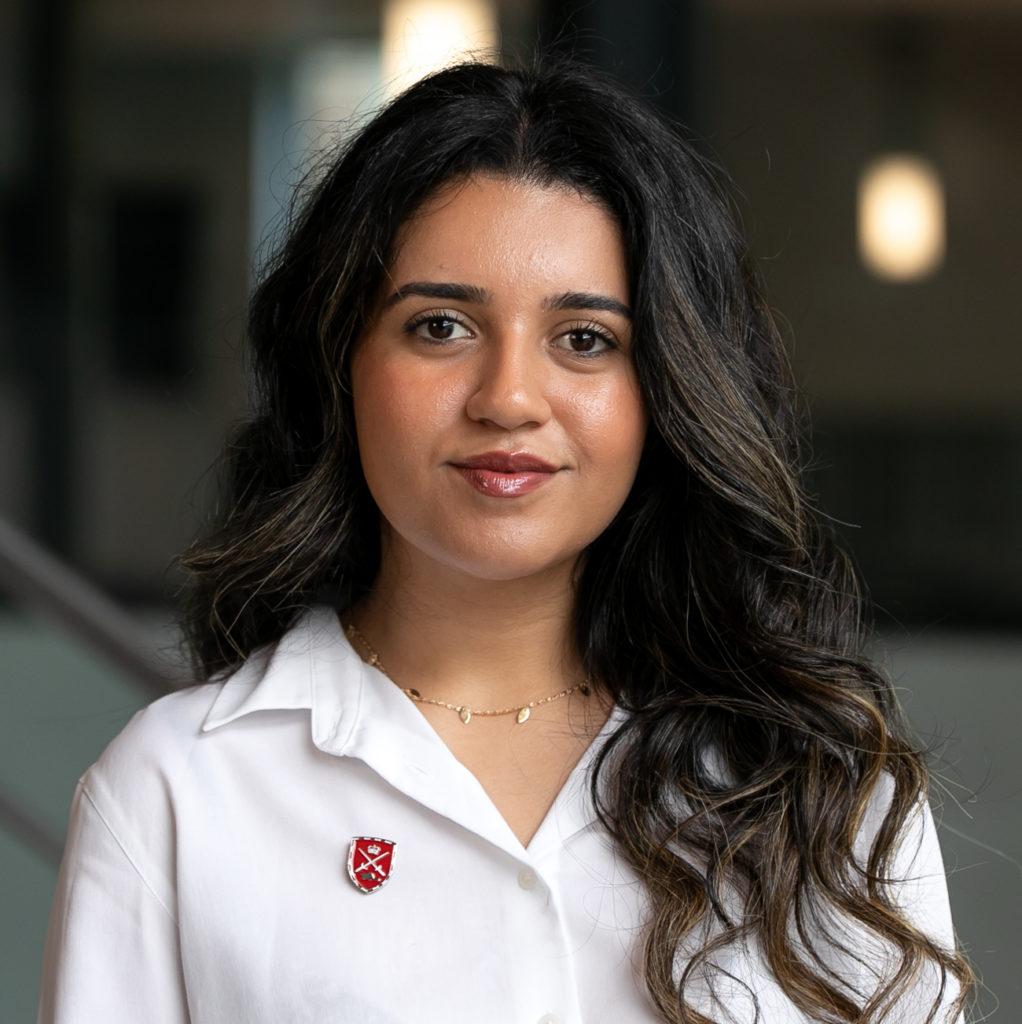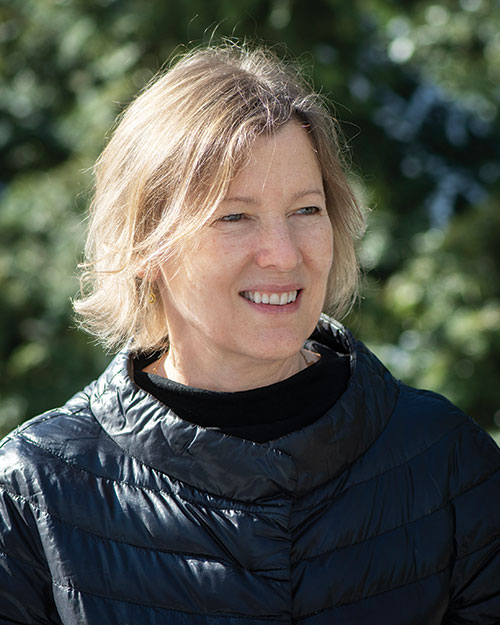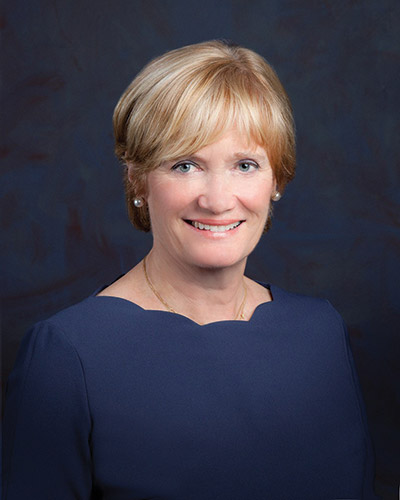Dean of Theology
It is sometimes said that ‘we never read the Bible alone’ because we are all influenced, whether we know or acknowledge it, by traditional ways of reading and patterns of interpretation. I always have this in mind in my research and teaching on the New Testament and other early Christian writings.
Clark and Mary Wright Professor of New Testament Theology
Since January 2020, Dr. Dan Smith has been serving as Dean of Theology, but he has taught New Testament Language and Literature at Huron since 2004. His research focuses on the Synoptic Gospels, the Sayings Gospel Q, and the Passion and Resurrection Narratives. Most recently, he has written on Marcion’s Gospel, a second-century form of the Gospel of Luke, and has begun work on a major commentary on the letters of Jude and 2 Peter. Dr. Smith is also a member of the Society for New Testament Studies, the Society of Biblical Literature, and the Canadian Society for Biblical Studies, and is a frequent contributor to the work of the Leuven Centre for the Study of the Gospels, at the Catholic University of Leuven (KU Leuven), Belgium.
“It is sometimes said that ‘we never read the Bible alone’ because we are all influenced, whether we know or acknowledge it, by traditional ways of reading and patterns of interpretation,” says Dr. Smith. “I always have this in mind in my research and teaching on the New Testament and other early Christian writings. I feel it is important, first of all, to keep in mind the authors and original readers of these writings. Understanding the historical, social, cultural, and religious contexts of these texts can help us see things in them that we wouldn’t otherwise see. That said, we also need to keep in mind all those who have read and who continue to read the Bible to shape and strengthen their faith and to help direct their work and service in the world – even if we think their readings went astray. So, the history of reception and the use of the Bible in communities of faith are also important. Finally, I also try to keep in mind those folk who, down through history and today, have had the Bible used against them as an instrument of oppression and marginalization. It’s important to my teaching that I create space for their voices to be heard so that the misuse of the Bible can be corrected.”
As Dean, Dr. Smith is committed to ensuring that Huron’s tradition of excellence and relevance in theological education continues to be enhanced. Whether you are interested in theological training and formation for ministry and service, or in Theology or Religious Studies as fields of academic inquiry and research, you have a unique opportunity at the Faculty of Theology, says Dr. Smith. “Not many theological schools are embedded, like we are, in a Liberal Arts university. Here, you can engage directly in an inclusive and collegial learning community, while being challenged to ask both big questions about faith, history, and justice, as well as hard questions about religion and its place in society, politics, and culture.”
Books
Nouvelle visite au tombeau vide : Les premiers récits de Pâques, trans. Charles Ehlinger, Lectio Divina 260 (Paris: Éditions du Cerf, 2013).
Revisiting the Empty Tomb: The Early History of Easter (Minneapolis: Fortress Press, 2010)
The Post-Mortem Vindication of Jesus in the Sayings Gospel Q, Library of New Testament Studies 338 (London; New York: T. & T. Clark International, 2006).
Edited Volumes
Prayer in the Sayings Gospel Q, ed. Daniel A. Smith and Christoph Heil, Wissenschaftliche Untersuchungen zum Neuen Testament 425 (Tübingen: Mohr Siebeck, 2019).
Built on Rock or Sand? Q Studies – Retrospects, Introspects and Prospects, ed. Christoph Heil, Gertraud Harb, and Daniel A. Smith; Biblical Tools and Studies 34 (Leuven: Peeters, 2018).
Selected Journal Articles and Book Chapters
“Peter, Pseudepigraphy, and Polemics: Deviance and ‘False Teachers’ in 2 Peter,” in Peter in the Early Church, ed. Judith M. Lieu, Bibliotheca Ephemeridum Theologicarum Lovaniensium 325 (Leuven: Peeters, forthcoming).
“‘No Weapon but That of Analysis’: Issues at Stake in the Rise and Reception of the Two-Document Hypothesis,” in Theological and Theoretical Issues in the Synoptic Problem, ed. John S. Kloppenborg and Joseph Verheyden, Library of New Testament Studies 618 (London; New York: Bloomsbury T. & T. Clark, 2020), 113-34.
“The Influence of Q’s Prayer Texts in Matthew,” in Prayer in the Sayings Gospel Q, ed. Daniel A. Smith and Christoph Heil, Wissenschaftliche Untersuchungen zum Neuen Testament 425 (Tübingen: Mohr Siebeck, 2019), 261-81.
“The Sayings Gospel Q in Marcion’s Edition of Luke,” in Ephemerides Theologicae Lovanienses 94/3 (2018): 481-503.
“Marcion’s Gospel and the Synoptics: Proposals and Problems,” in Gospels and Gospel Traditions in the Second Century: Experiments in Reception, ed. Jens Schröter, Tobias Nicklas, and Joseph Verheyden, Beihefte zur Zeitschrift für die neutestamentliche Wissenschaft 235 (Berlin: de Gruyter, 2018), 129-73.
“Excursion, Incursion, Conquest: A Spatial Approach to Mission in the Synoptics,” in The Gospels and Their Stories in Anthropological Perspective, ed. John S. Kloppenborg and Joseph Verheyden, Wissenschaftliche Untersuchungen zum Neuen Testament 409 (Tübingen: Mohr Siebeck, 2018), 191-214.







 Lisa Jones Keenan is the Vice President of Sales at Xplornet Communications, the largest rural fixed wireless broadband service provider in Canada.
Lisa Jones Keenan is the Vice President of Sales at Xplornet Communications, the largest rural fixed wireless broadband service provider in Canada. 
 Leigh Allen is the AVP, Global Strategic Research, Reinsurance Group of America Inc., one of the world’s largest global life and reinsurance companies.
Leigh Allen is the AVP, Global Strategic Research, Reinsurance Group of America Inc., one of the world’s largest global life and reinsurance companies. Yola Ventresca is a Managing Partner, Lerners LLP, Secretary of Huron’s Board of Governors and a Huron Class of ’02 alumni. Selected as one of Canada’s “Best Lawyers,” she is passionate about the value of Liberal Arts in helping students succeed in their careers.
Yola Ventresca is a Managing Partner, Lerners LLP, Secretary of Huron’s Board of Governors and a Huron Class of ’02 alumni. Selected as one of Canada’s “Best Lawyers,” she is passionate about the value of Liberal Arts in helping students succeed in their careers. Susan Farrow is an Assistant Professor in The Temerty Faculty of Medicine at the University of Toronto and a Founding Partner and Co-Director of The Toronto Institute of Group Studies, an organization offering certified training and education in group leadership.
Susan Farrow is an Assistant Professor in The Temerty Faculty of Medicine at the University of Toronto and a Founding Partner and Co-Director of The Toronto Institute of Group Studies, an organization offering certified training and education in group leadership.  Frank Holmes is CEO and Chief Investment Officer of U.S. Global Investors, as well as a business commentator, philanthropist and Huron Class of ‘78 alumnus. Holmes also serves as the Executive Chairman of HIVE Blockchain Technologies, the first cryptocurrency mining company to go public in 2017.
Frank Holmes is CEO and Chief Investment Officer of U.S. Global Investors, as well as a business commentator, philanthropist and Huron Class of ‘78 alumnus. Holmes also serves as the Executive Chairman of HIVE Blockchain Technologies, the first cryptocurrency mining company to go public in 2017. Kelly Meighen is an experienced philanthropist and volunteer. In her role as president of the T.R. Meighen Family Foundation, she has created a legacy of volunteerism and philanthropic giving in the areas of youth mental health advocacy, environmental conservation and cultural vibrancy.
Kelly Meighen is an experienced philanthropist and volunteer. In her role as president of the T.R. Meighen Family Foundation, she has created a legacy of volunteerism and philanthropic giving in the areas of youth mental health advocacy, environmental conservation and cultural vibrancy.  Ranjita is Executive Chair of the Oxford Global Partnership, advising investors, businesses, family offices and entrepreneurs on sustainable, inclusive and responsible value creation. A Business Fellow at Oxford University’s Smith School, Ranjita engages with companies on pursuing value with values, and teaches a postgraduate “Essentials of ESG & DEI” course.
Ranjita is Executive Chair of the Oxford Global Partnership, advising investors, businesses, family offices and entrepreneurs on sustainable, inclusive and responsible value creation. A Business Fellow at Oxford University’s Smith School, Ranjita engages with companies on pursuing value with values, and teaches a postgraduate “Essentials of ESG & DEI” course. Caleb Hayhoe is the Founder & Chairman of Flowerdale Group and a Huron Class of ’85 Alumnus. Flowerdale Group is a Hong Kong based family office with a global investment outlook across public markets, real estate and private investment. Hayhoe previously spent over ten years building a global sourcing business together with an exceptional team, and remains committed to entrepreneurialism and helping great ideas become sustainable companies.
Caleb Hayhoe is the Founder & Chairman of Flowerdale Group and a Huron Class of ’85 Alumnus. Flowerdale Group is a Hong Kong based family office with a global investment outlook across public markets, real estate and private investment. Hayhoe previously spent over ten years building a global sourcing business together with an exceptional team, and remains committed to entrepreneurialism and helping great ideas become sustainable companies.



